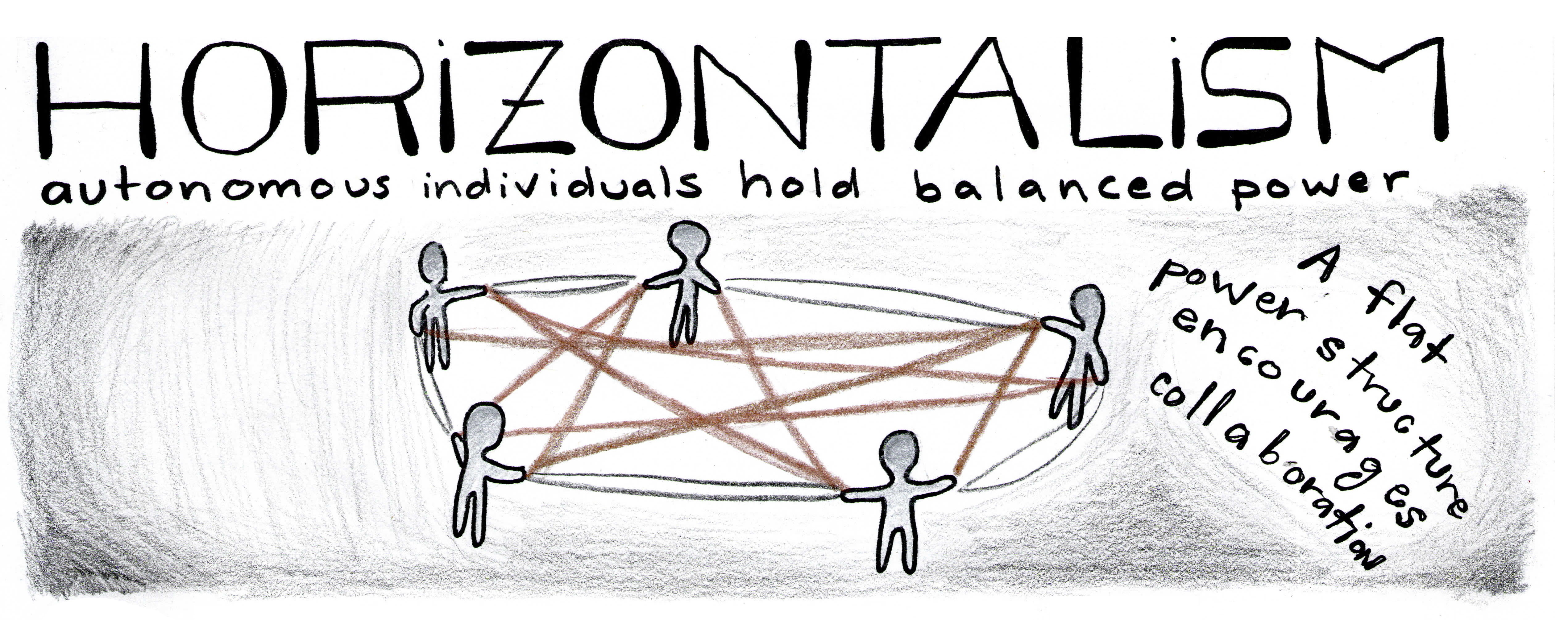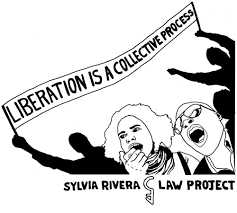Sometimes I feel like it is out of style to be in and build organizations, compared to in prior eras of social movement work. When I was reading Katie Batza’s book Before AIDS, I was struck by one of the interviewees talking about in the 70’s how if you were interested in something or pissed about something, what you did was join a group and start a project like a newspaper or free clinic or childcare project or whatever. These days, I think we are more (mis)directed, if we are feeling up in arms over something, to only declare our views online or send a check to a non-profit, or maybe try to get a job at a non-profit. There is less participation in groups of all kinds, and our movements suffer from that. I’ve been trying to support conversations about people building mutual aid projects as a response to that dynamic. Supporting people to do that includes showing lots of awesome models of what people are starting–abortion funds, child care collectives, networks for housing people coming out of prison, court support projects, defense campaigns for criminalized people, bail and bond funds, and the like–but it also includes talking about how to build organizations where people work well together and can stick to it for a while instead of bursting into flames from conflict and harm. I wanted to make a post that has some of my favorite resources about that here because I find people asking me for this stuff more and more. Yay! Let’s build lots of awesome organizations and do amazing stuff together. Fight to win!
Tools I have written or co-written:
- A document about building accountability and avoiding disposability in our organizations I prepared for an event Mariame Kaba organized about organizational conflict a few years ago. There is some detail about a model of evaluating people’s work who are in paid or leadership roles if your group has that, but it may also be adaptable for organizations that don’t have paid roles but want to make sure people get feedback and support in their work in the organization.
- A report I worked on with other people from the Sylvia Rivera Law Project (SRLP) studying various organizations’ models of membership, decision making, dealing with burn-out, how to plug in people who have obstacles to participation, and other key issues. It has useful ideas for structuring mutual aid projects and dealing with common problems. You may also be interested in this page about why SRLP has been run as a collective for more than 15 years.
- An essay I published about conflict inside our social movement groups and what to do when it is happening.
- A chart I made about organizational culture that may help groups you are forming or working in to talk through how things are now and how you want them to be.
- An essay and chart about the difference between “having a cause” and building sustained radical lives and communities.
- A chart about leadership qualities that support mutuality versus those that support hierarchy.
- An essay about burnout and overwork that may be of use to people suffering from burnout themselves, or being impacted by someone else’s burnout behavior.
- A worksheet about overwork that people may want to use in a group or organization to talk together about if they are overworking and how to change it. I made this for an organization I was working with where overwork was causing conflict. We talked about it in a workshop together.
- What I Do Under Pressure Worksheet. I made this for a workshop with an organization where we wanted to increase everyone’s self-awareness about what happens to us when we are stressed, what happens when we are trying to support someone else who is stressed, and what kinds of support we’d like from people we are working with when we are stressed. It is meant to be filled out by each person so that they can share what they choose to share from it with people they are working with to increase awareness of the best ways to support each other in hard times.
- A worksheet for reflecting on perfectionism. I made this after talking to campus activists at a school I was visiting where they shared that a major force of demobilization among them was a sense that if they couldn’t do things perfectly it was safer not to participate. We looked at this worksheet together in a workshop and talked about where we saw perfectionism in our lives, its impacts, and how it got there.

Tools I admire and recommend from other people and organizations:
- This zine from Activate Grand Rapids addresses how to form an affinity group.
- Five Tips for Forming and Affinity Group from Resilience Circles. They also provide a guide for your first meeting, and lots of other information about building small groups and circles.
- War Resisters International provides a guide called Techniques for Consensus Decision Making in large Groups: The Spokespersons Council Method and a sheet about affinity groups that talk about the purpose of affinity groups, how to run groups, how to make decisions, roles within groups and more.
- On Conflict and Consensus is a very useful book about how to do consensus decision making.
- Beautiful Solutions is a useful site collecting stories, solutions and theories about transformation. Check out their page on horizontalism which links to many specific accounts of people creating and sustaining horizontalist projects.
- Marina Sitrin’s book, Horizontalism, provides a window into horizontal organizing in Argentina that is full of examples that will inspire.
- Gay Shame just released a new zine about how to do direct action that includes useful guidance about forming groups and initiating projects. You can also email gayshamesf at yahoo dot com and they can send you a lot of paper copies to distribute in your community.
- Here are some tools from the Center for Story-Based Strategy about sustainability in our work, including No-Burnout Bingo!
- Punch Up Collective created a curriculum called “Getting It Together: Organizing Collectives for the Real World” and they include their own list of additional resources that are very useful.
